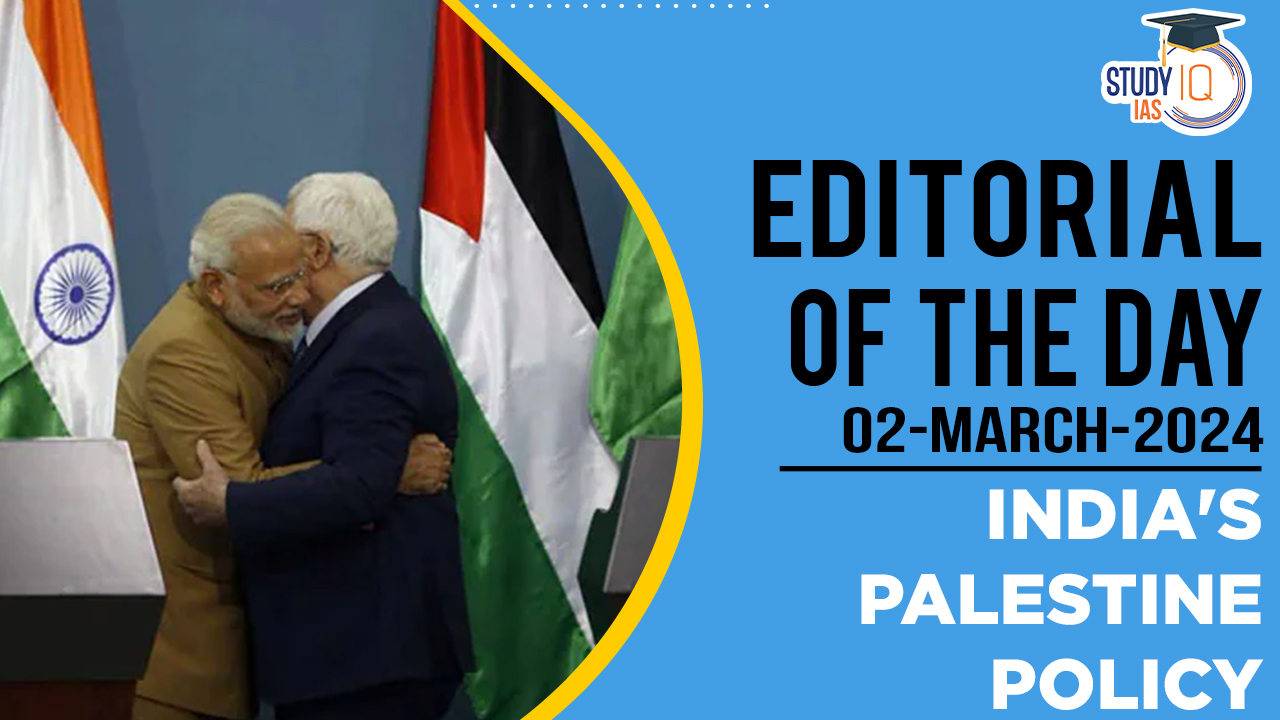Table of Contents
Context:
- India’s historical support for Palestine has coexisted with the development of robust ties with Israel, creating a delicate diplomatic balance.
- Recent events suggest a potential shift in India’s stance, raising questions about its alignment in the changing dynamics of West Asia.
Historical Context of India’s Palestine Policy
- India’s initial stance opposed the partition of Palestine in 1947, aligning with the Arab bloc.
- However, India recognized Israel in 1950, navigating a pragmatic path amidst geopolitical complexities.
- Throughout the Cold War, India remained a vocal supporter of the Palestinian cause, reflecting its commitment to Third World autonomy.
Recent Developments
- Despite deepening ties with Israel since establishing full diplomatic relations in 1992, India maintained public support for a negotiated two-state solution.
- Prime Minister Modi’s historic visit to Israel in 2017 underscored the strengthening partnership between the two nations, reflecting a nuanced approach to regional diplomacy.
We’re now on WhatsApp. Click to Join
Shift in India’s Palestine Policy
- The aftermath of the October 7 Hamas attack in Israel highlighted India’s evolving stance, as Prime Minister Modi expressed solidarity with Israel.
- India’s abstention from a UN vote following the attack signalled a departure from its traditional support for Palestine, sparking speculation about a paradigm shift.
Voting Record at the UN
- Despite the perceived shift, India’s voting pattern at the UN reflects a continued commitment to Palestinian rights.
- India supported resolutions condemning Israeli settlements and advocating for Palestinian self-determination, reaffirming its stance on a two-state solution.
India’s Interests in Palestine
- India’s support for Palestine aligns with its aspiration to lead the Global South, echoing sentiments expressed by other nations critical of Israel’s actions.
- External Affairs Minister S. Jaishankar’s critique of civilian casualties in Gaza underscores India’s concerns about humanitarian crises.
Implications and Future Outlook
- The escalation of conflict in the region poses challenges to India’s strategic interests, particularly in the context of regional stability and economic partnerships.
- The resolution of the Palestine question remains a crucial factor for India’s engagement in West Asia, shaping the trajectory of its Act West policy.
Conclusion
- India’s evolving policy towards Palestine reflects a delicate balancing act between strategic partnerships and longstanding commitments to Palestinian rights.
- The complexities of regional dynamics necessitate a nuanced approach, balancing diplomatic pragmatism with moral imperatives in pursuit of India’s national interests.


 Graphic Processing Units (GPUs) – Work...
Graphic Processing Units (GPUs) – Work...
 Gold Imports and the Indian Economy – ...
Gold Imports and the Indian Economy – ...
 Nilgiri Tahr Conservation: Ecology, Habi...
Nilgiri Tahr Conservation: Ecology, Habi...




















